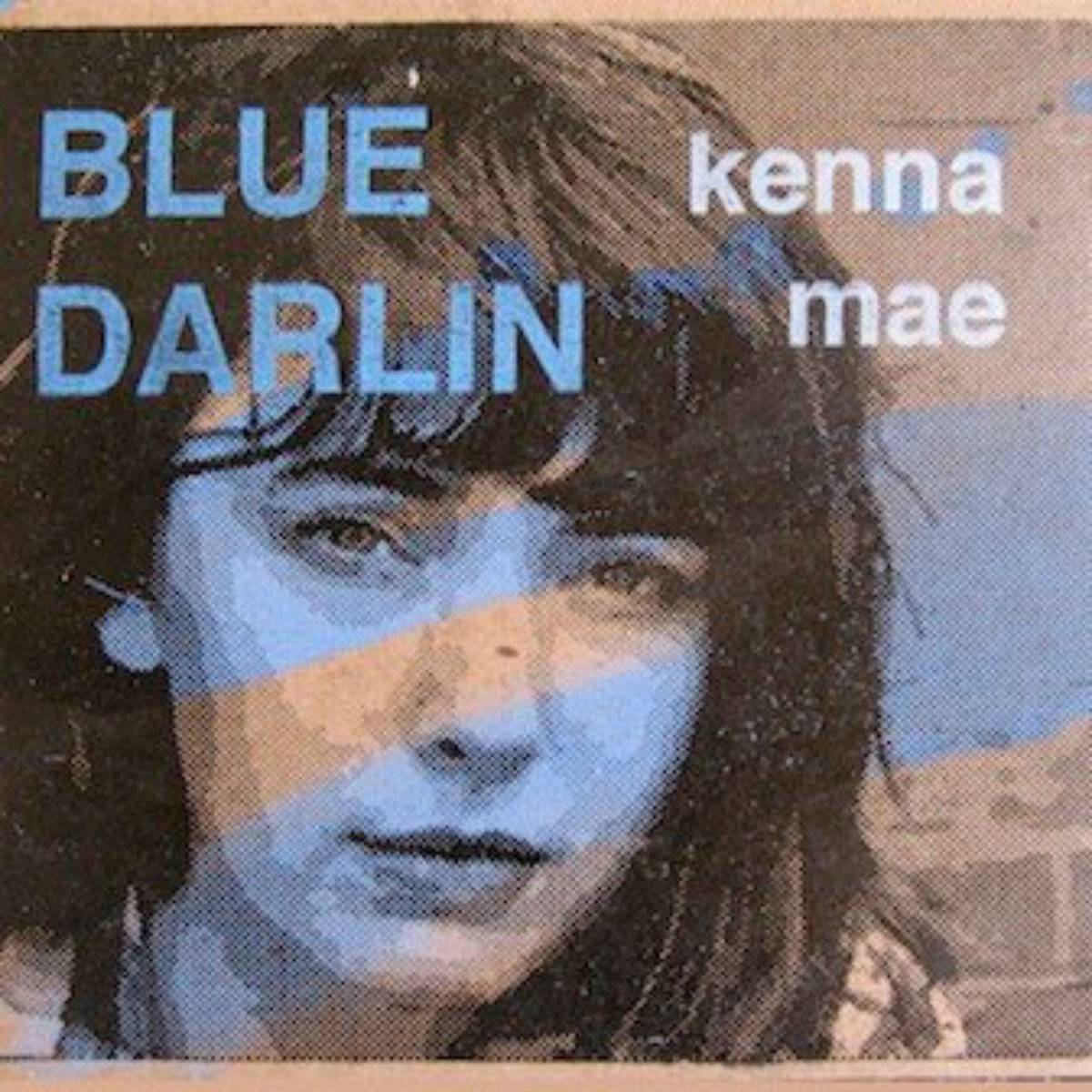Kenna Mae’s voice is a weapon. This much is clear from the very beginning of her debut album, Blue Darlin. Her voice is like a blunt object that knocks you senseless while her razor-sharp lyrics lash you and keep you down. And once you’re down, you’re held down; there’s not a lot of cheer on Blue Darlin, but anyone looking to commiserate has a friend in Kenna Mae.
Listening to the album, you get the feeling Kenna Mae has really seen some shit or she’s gotten real good at bullshitting. The distinction is entirely unimportant, however, because the sincerity of the songs has absolutely no bearing on the quality of her lyrics. And those lyrics are awfully damn good.
Throughout Blue Darlin, Kenna Mae lays her soul bare for the listener to dissect, but nowhere better than on “Trash.” When she sings, “I feel like trash,” her voice takes you as low as she feels, but then she turns it around singing “I don’t want to be alone, happiness can be a bore,” and you realize that she wanted to feel that way all along. That duality runs through the album, but it’s never done as smart as on “Trash.” The song is also produced brilliantly, with the guitar a quiet but present force, a companion and counterpoint to Kenna Mae’s voice as it rises and falls in emotional bursts.
“Trash” falls right in the middle of the strongest section of the album, its final three songs. The bookends for “Trash,” “A Man’s Song” and “Gonna Make It Home,” are cohesive and flow into one another beautifully. Both are fleshed out beyond Kenna Mae’s voice and guitar, with “A Man’s Song” using the full band sound to great effect and “Gonna Make it Home” exemplifying how soft accents, in this case piano and a violin outro, can highlight the singer-songwriter’s performing chops.
The band behind Kenna Mae also shines on tracks like “Habit,” where Kenna Mae as an individual takes a backseat to her band. On “Habit,” it’s the bass line, breathy background vocals, and swirling organ that create the most interest. Likewise, on “Setting Sun,” Bob Watson’s pedal steel shines and steals some of the spotlight.
With many sparse arrangements, the album plays like a folk album, but it’s obvious that Kenna Mae has no intentions of being pigeonholed into a single genre. Watson’s pedal steel pushes the album towards Nashville country territory, whereas “Sober Enough” rocks like a Lydia Loveless song. The album tries out other styles to varying degrees of success, with the least successful being the title track. “Blue Darlin” is a good song, to be sure, but it plays like a soft jazz number, better suited for a Norah Jones album than the rest of the songs on this album.
On “Blue Darlin,” however, Kenna Mae’s voice feels the most natural. On nearly every other song on the album it seems like the singer is really reaching, trying for unique voicings that she can’t always find with authority. I’d liken this approach to that of Ryan Adams on Cold Roses; Adams seems to use a different tenor on every song, voicing each song on the double album in a unique way. Cold Roses was the eighth album of Adams’ career, whereas this is Kenna Mae’s first, so the singer deserves credit for trying and encouragement to find what works best.
What works best to my ear is a song like “Trash,” where Kenna Mae doesn’t try to push her voice too far below her comfortable range and doesn’t have to compete with Emily Otnes’ more traditionally pretty voice in the background. A little bit of this kind of experimentation is to be expected of a new artist, particularly someone of Kenna Mae’s age, who might not have found their personal sweet spot. But despite its flaws, Blue Darlin is an album that is certainly not going to disappoint those who backed the Kickstarter to fund it. Likewise, those who come across the album are likely to be intrigued and engaged and eager to see what Kenna Mae does next.








